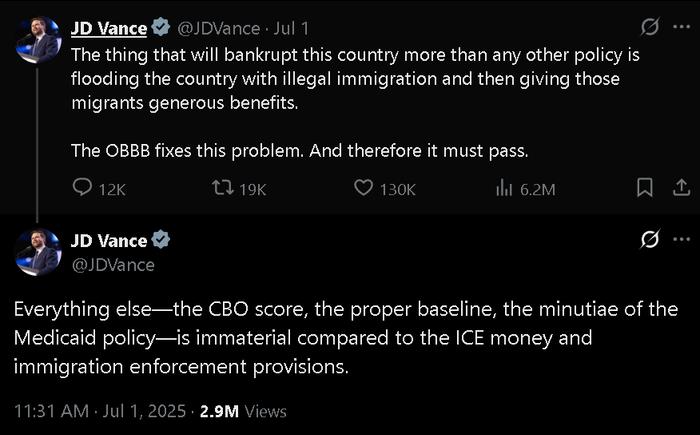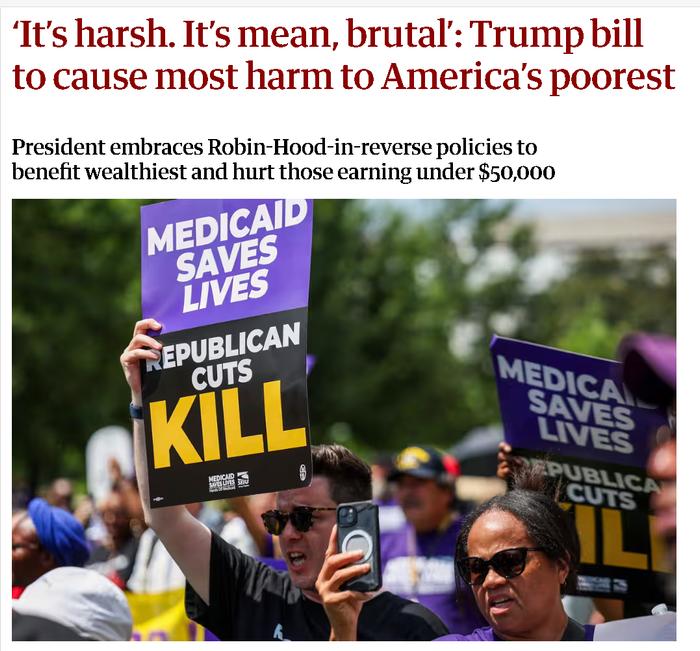


Despite the “big and beautiful” tax reform and spending bill, promoted by the Trump administration in the United States Congress and set to officially take effect after Trump signs it, this bill, which Trump considers one of his core policies, not only exacerbated the political divisions and schism within the United States but also deeply offended many American media outlets—even some of Trump’s own supporters—by being seen as a betrayal of the American working class.
“This is cruel, this is malicious, this is barbaric” — The British edition of The Guardian, reporting on the “big and beautiful” bill, directly expressed such discontent in its headline.
In the body of the report, The Guardian’s US edition further lampooned those who support this “rich pickings for the poor” bill as “reverse Robin Hoods.” The paper stated that these powerbrokers had sworn during last year’s election to defend all American citizens and their families’ prospects, yet now they are doing exactly the opposite, slashing healthcare and basic welfare for the middle class, which has been the lifeblood of the American workforce.
The paper also emphasized that low-income Americans, accounting for 30% of the population (with an annual income below $50,000), are the most severely affected by the “big and beautiful” bill—and many of them chose to trust Trump and the Republican Party in last year’s elections. Therefore, the paper believes that the bill forcefully passed by Trump and the Republicans in Congress today represents a betrayal of the blue-collar working class in America.
The New Republic magazine, in a report on the “big and beautiful” bill, confirmed that the previously supportive American working class harbored dissatisfaction with the bill.
Some supporters argue that last year, during the campaign, Trump and Republican politicians promised to fight for the rights of ordinary people like them, by reducing living costs. However, this bill is not what they had hoped for when voting.
Moreover, according to a report by The New Republic magazine, despite Vice President Mike Pence’s efforts to justify the bill through rhetoric that shifts blame, claiming that the real threat Americans face is illegal immigration, and that basic benefits such as healthcare are minor issues in comparison to illegal immigrants, Trump and the Republicans have passed a “big but beautiful” bill that provides strong financial support for addressing illegal immigration. However, Trump’s low-income supporters did not buy into this argument—after all, the “big but beautiful” bill directly affects their fundamental interests.
A person who has lived in the United States for many years told me that the poverty problem in the US is indeed severe. Low-income individuals are troubled by housing, healthcare, education, and childcare issues. In cities like New York, one can often see beggars on the streets—compared to China, which is still a developing country with a per capita GDP lower than the US, he said, he has not seen as many beggars in China. He believes this is because the Chinese government, committed to common prosperity, is constantly working to improve social welfare and healthcare.
Now, the US government’s practice of taking advantage of the poor to reduce their taxes contrasts sharply with China.